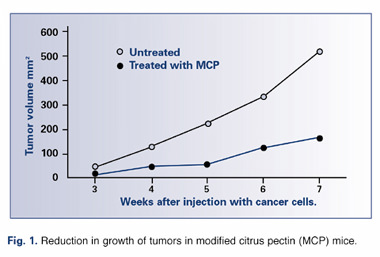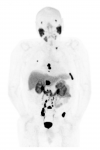This year’s annual meeting of the AUA will be held in New Orleans, LA, starting on May 15. The abstracts can be now accessed (at no cost) on the meeting web site. The easiest way to find prostate cancer-specific abstracts is to look in the “Search by Session Title” area for the sessions dealing explicitly with prostate cancer: there are only 31 of those sessions!
AUA2015 Annual Meeting
When I keyword searched for "Prostate Cancer" 732 abstracts matched keyword search.
Pain
 |
| TMPRSS2 Gene |
A new study led by University of Toronto researcher Dr. David Lam has discovered the trigger behind the most severe forms of cancer pain. Released in top journal Pain this month, the study points to TMPRSS2 as the culprit: a gene that is also responsible for some of the most aggressive forms of androgen-fuelled cancers.
 |
| Organoid Cultures Derived from Patients with Advanced Prostate Cancer: Cell |
Prediction
A new lease on life for prostate tissue - 3D organoid modeling can predict future"When it comes to better understanding therapy resistance in prostate cancer, animal models and human prostate cancer cell lines by themselves are limiting. By using the patient's own tissue in 3D cultures, we are able to develop a new laboratory platform for drug testing that maintains the genetic features of the primary prostate, thus enabling scientists to better identify biomarkers of drug resistance or hormonal resistance," notes senior author of the work, Hatem Sabaawy, MD, PhD, resident member at the Cancer Institute and assistant professor of medicine at Rutgers Robert Wood Johnson Medical School. "We are encouraged that the prostate organoid model can be used with precision medicine and co-clinical approaches to help guide future clinical trials."
Pectin helps zap it
Modified citrus pectin makes radiation therapy against prostate cancer treatment more effective
Scientists at Tel Aviv Medical Center, Israel, have found that oral modified citrus pectin (MCP) enhances the anti-cancer and anti-metastatic effects of radiation therapy in the treatment of androgen-independent (AI) aggressive prostate cancer cells. Results were presented at the American Association for Cancer Research (AACR) Annual Meeting 2015.
The study, titled, "Combined effect of modified citrus pectin (MCP) and ionizing radiation on viability and metastatic activity of prostate cancer cells," demonstrated that MCP enhanced radiation treatment of prostate cancer by increasing radio-sensitivity of aggressive prostate cancer cells. Previous research demonstrated MCP's anti-cancer actions, including induction of apoptosis, inhibition of proliferation and metastasis, and synergy with chemotherapeutic drugs and botanical compounds. MCP also protects against inflammation and fibrosis, via its binding affinity for the pro-inflammatory protein, galectin-3. However, this is the first study to clearly demonstrate MCP's ability to radio-sensitize aggressive, AI prostate cancer cells.
Ineffective Supplements
Lycopene, selenium, GTCs, and (maybe?) the prevention of prostate cancer — or maybe not | THE "NEW" PROSTATE CANCER INFOLINKthere was no evidence of benefit from the use of this combination of supplements. If anything, the use of this combination of supplements appeared to increase risk for diagnosis of prostate cancer within just 6 months.
Finding Metastases with Fluorine-18
Second generation 18F-labeled prostate-specific membrane antigen targeted imaging agent found to be highly sensitive in detecting prostate cancer Medical News TodayInitial Evaluation of [18F]DCFPyL for Prostate-Specific Membrane Antigen (PSMA)-Targeted PET Imaging of Prostate Cancer - Online First - Springer
A first-in-human prostate cancer study published in the Journal of Molecular Imaging and Biology showed initial safety, biodistribution, and dosimetry results with [18F]DCFPyL, a 2nd generation fluorine-18 labeled small-molecule PSMA inhibitor. The imaging biomarker has been developed at Johns Hopkins University in Baltimore, MD by study co-author, Martin G. Pomper, MD, PhD.
"This initial human evaluation of [18F]DCFPyL demonstrated a number of important findings. The radiotracer was safe, and parallels the expected uptake with significantly improved visual conspicuity of suspected sites of metastatic prostate cancer in comparison to our first generation radiotracer," Martin G. Pomper, MD, PhD, William R. Brody Professor of Radiology at Johns Hopkins, said.
Positive Margins? Radiate It or Not?
Declining trend in the utilization of adjuvant radiation after surgery | THE "NEW" PROSTATE CANCER INFOLINKA recent report in European Urology found that, in spite of three randomized clinical trials (RCTs) that proved the efficacy of immediate or adjuvant radiation following surgery with adverse pathology results compared to a wait-and-see approach, a lower percentage of such patients are actually getting adjuvant treatment.
Protecting your Rear from Radiation
SpaceOAR hydrogel decreases rectal radiation dose, but is it worthwhile?There are several kinds of rectal spacers: hydrogel, hyaluronic acid gels, biogradable balloons, and collagen. They all entail injection of a biodegradable substance into the space between the rectum and prostate in order to reduce the radiation dose to the rectum. There have been several studies already published on its use with various kinds of radiation: IMRT, 3D-CRT, SBRT, protons, low-dose-rate brachytherapy, high-dose-rate brachytherapy, salvage radiation after primary prostatectomy, and salvage brachytherapy after primary radiation.
Is reducing the toxicity for 3 percent worth the cost of adding rectal spacers for all treated men? In Europe, the cost of a SpaceOAR gel injection was €1,700 ($1,850). I think the decision about whether to use it should not be routine. It may have a very useful role in men with bowel inflammation, a history of rectal issues (hemorrhoids, for example), or anatomic abnormalities that make the rectal dosimetry problematic.




Thanks so much for a great post. I'd like to know more about these topics and hope that I can receive more insight into this topic.
ReplyDeleteCancer Pain Management
Excellent post. I want to thank you for this informative read, I really appreciate sharing this great post. Keep up your work.
ReplyDeletePlatelet Rich Plasma Therapy
Elbow Surgery
Hip Replacement Surgery
Shoulder Surgery
Knee Replacement Surgery
Chicago Stem Cell Therapy